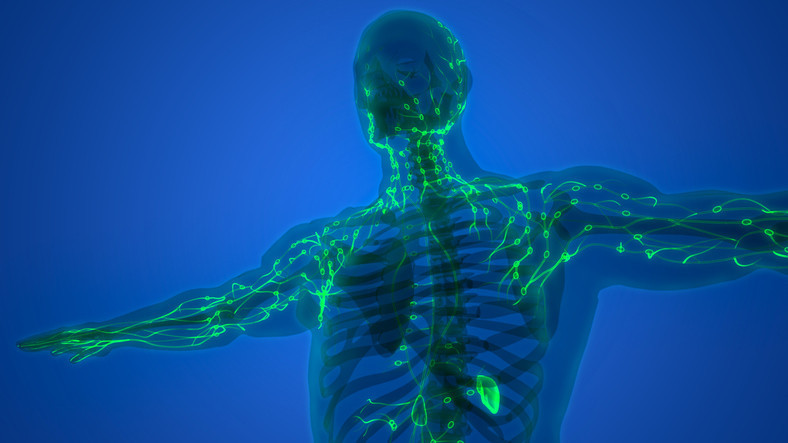
Here’s a question you probably haven’t been asked lately: What do you know about lymph nodes?
If your answer is “not much,” you’re not alone. But even as our lymph nodes keep a low profile, they’re still working around the clock to respond to potential health problems, from common viruses to deadly bacteria and even cancer.
Read on to learn more about these workhorses of the immune system as they are responsible for fending off outside invaders and rogue molecules in our bodies.
What are lymph nodes?
Your lymph nodes are part of your immune system and help protect your body from health threats. These bean-shaped, pea-sized tissues pile up into a network of clusters throughout the body. They filter lymph (lymph), a white-yellow fluid that originates from the blood.
There are hundreds of lymph nodes in the human body. They are most numerous and noticeable on the neck, armpits, and groin. They are also abundant in the chest and abdomen and can be seen with imaging tests such as CT or MRI scans.
Sometimes lymph nodes are called glands (eg: “When I had mononucleosis, the glands in my neck swelled”), but this is not accurate. Hormones or other chemicals produced by glands such as the thyroid can have effects on other parts of the body. This is not what lymph nodes are for.
How does lymph get to our lymph nodes?
Lymph is produced when plasma (the liquid part of the blood) leaks out of tiny blood vessels and flows into connecting channels that connect lymph nodes throughout the body. These connecting channels are called the lymphatic drainage system.
After the lymphatic fluid passes through the lymph nodes, it eventually returns to the bloodstream through lymphatic vessels.
What is the function of lymph nodes?
Our lymph nodes search lymph fluid for infections or other potential disease triggers. If threats are detected, white blood cells called lymphocytes and other immune cells within the lymph nodes identify and try to eliminate them.
The main functions of lymph nodes are:
- Detect and destroy infectious microorganisms
- Remove abnormal cells, including cancer cells and precancerous cells
- Eliminate damaged cells or cell products that may cause disease.
Are swollen lymph nodes and pain normal?
It’s normal for lymph nodes to swell and become tender as they work, especially in response to an infection. These reactive lymph nodes may become as large as grapes and feel painful when touched. But this is only temporary: when the infection subsides, they should return to normal immediately.
In localized infections such as skin infections or sore throats, swollen lymph nodes may be limited to the area of the body near the infection. However, with systemic infections such as HIV or mononucleosis, swollen lymph nodes may be more common.
Can disease start in lymph nodes?
Although they are usually a useful part of the immune system, disease sometimes starts in the lymph nodes.
Lymphoma is a cancer that starts in lymph nodes or lymphoid tissue elsewhere in the body, including the bone marrow, spleen, or intestines. Rare inflammations may also involve lymph nodes; Castleman’s disease and Kikuchi disease are two examples.
Infections can affect the lymphatic system. Lymphatic filariasis, a parasitic disease transmitted by mosquitoes, is a good example.
Imagine a world without lymph nodes
Because they play an important role in the body’s immune defense, the absence of lymph nodes may mean more and longer-lasting infections. Additionally, infections that are usually localized to one part of the body may spread more easily.
Considering all the ways lymph nodes help us stay healthy, it may seem surprising how common they are to be removed. One or more lymph nodes may be removed to determine if they are cancerous or if a newly diagnosed cancer (such as breast cancer) has spread to the lymph nodes. But since we have hundreds of lymph nodes, this lymph node removal is unlikely to cause immune function problems.
Sometimes lymph node surgery can impair lymphatic drainage. When this happens, fluid accumulates in nearby tissues. Chronic swelling called lymphedema can be a complication.
bottom line
While there are many things you can do to maintain a healthy immune system and good health—choosing a healthy diet, exercising regularly, not smoking, etc.—you can’t do for yourself what your lymph nodes do for you.
So while the humble lymph nodes are easy to overlook, we should all be grateful that we have them.

